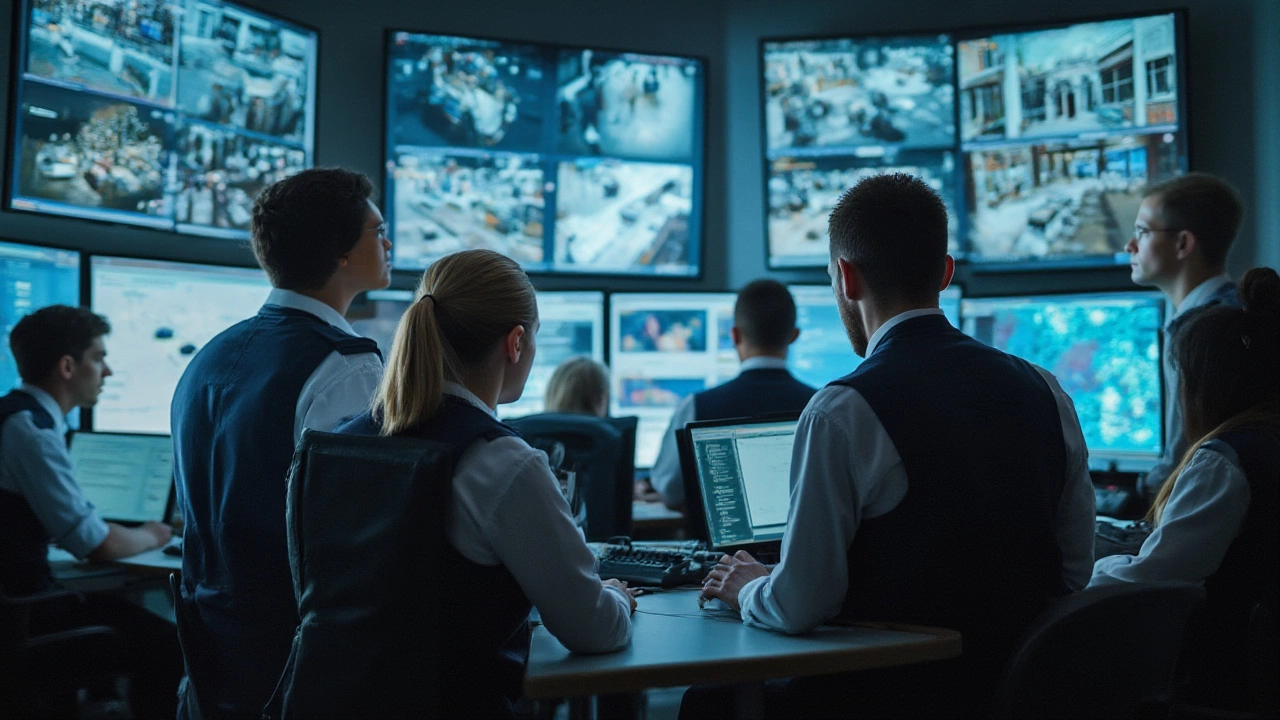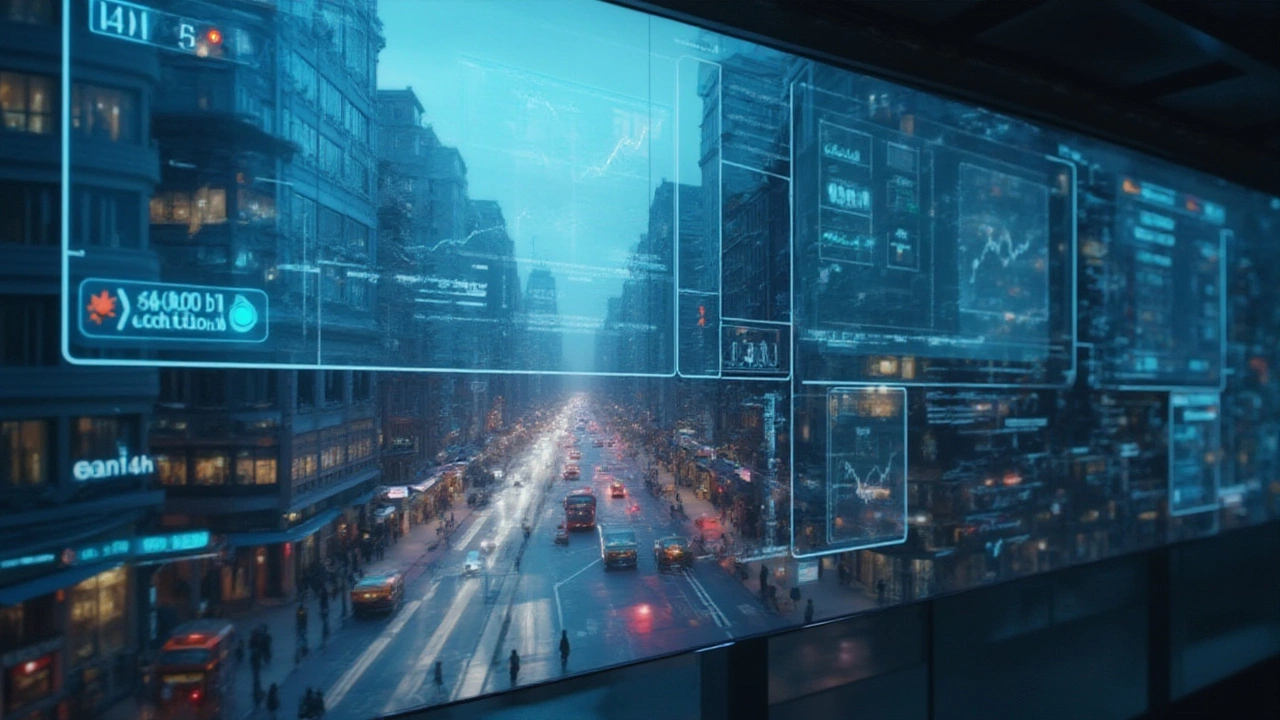If you think being a CCTV operator caps out at minimum wage, you might be missing the money hiding in plain sight. Right now in 2025, security isn’t a cheap word—especially for businesses stacking up millions in assets. They want eyes on their goods, and they’re ready to shell out to keep them safe. But can you actually make a solid living as a CCTV operator? Even hit a yearly paycheck that turns heads? Let’s get deep into the real numbers, the outliers, and how to climb the security pay ladder if you’re playing the camera game.
Understanding CCTV Operator Roles and What Drives Their Pay
CCTV operators used to sit in tiny, windowless rooms, watching grainy feeds late into the night. But in 2025, the job isn’t a simple “watch and yawn” gig. There’s software to run, alarms to check, reports to file, and often split-second decisions to make that can save serious cash or even lives. Operators today are often part technician, part crime prevention pro. The more responsibility, the higher that paycheck can go.
The basics are pretty straightforward. Your job is to monitor camera feeds, spot anything out of place, and follow up as needed. That might mean calling the police, alerting on-site security, or flagging things in a log. For more advanced jobs, you might be setting up cameras, analyzing footage for cases, or even testifying in court. Operators who work in critical infrastructure—think airports, casinos, and data centers—often deal with higher stakes. They get special training on things like cyber threats and emergency protocols. That extra know-how often boosts pay well above entry-level roles.
Pay also depends a ton on the type of company or organization. Public sector roles, like local government CCTV jobs, usually pay differently than private security companies. There’s also a difference if you’re working for a retail chain, an energy plant, or a luxury hotel. You could be sitting for eight hours in a housing estate—or be one of the few trusted to monitor a bank’s vaults. Bigger responsibilities? Bigger salary, obviously.
A huge driver these days is technology. Surveillance systems aren’t just cameras—they’re tied into AI, facial recognition, cloud storage, and sometimes even networked with police feeds. If you’re the tech-savvy sort who can run multiple dashboards or handle system malfunctions on the fly, managers notice. Some of the best-paid operators have IT skills that put them closer to the world of security engineering than old-school ‘watch-the-monitors’ jobs.
Another thing to remember: Shift work can mean bigger paychecks. Overnight or weekend roles sometimes pay a premium, especially if the site runs 24/7. And if you’re willing to relocate to high-crime or high-risk locations? Some jobs offer danger pay and extra allowances on top of standard wages.
Highest Paying Sectors and Employers for CCTV Operators
So where’s the real money? Not all CCTV operator jobs pay the same, and some sectors are notorious for shelling out serious cash. If you want a shot at the highest salary as a CCTV operator this year, keep your eyes on these opportunities.
- Financial Services & Banks: These jobs are gold. Banks fear theft, cyber attacks, and inside jobs, so they invest in skilled surveillance staff. Pay can top out well into the $60,000s per year for senior operators or those in management jobs, especially in big metro areas or national banks.
- Casinos and Gaming Resorts: Known as the ‘eye in the sky’, casino CCTV teams are legendary for catching cheats and handling millions in chips and cash daily. Top operators with years of experience and anti-fraud training can earn $55,000 to $70,000 per year, especially in places like Las Vegas, Macau, or Singapore.
- Critical Infrastructure (Power Plants, Airports): Negligible margin for error here. Some US nuclear plant operator jobs post salaries upwards of $75,000 annually for specialists who know the ins and outs of both physical and cyber surveillance
- Government & City Surveillance: Think major UK cities. London CCTV control rooms employ skilled teams, with senior operators pulling in £35,000-£45,000 (~$45,000-$57,000). Big cities with crime challenges often pay extra for night and weekend shifts.
- Corporate Security Teams: Major corporations, especially tech and pharmaceutical firms, need expert surveillance for monitoring both the inside and perimeter of high-value facilities. They pair operator pay with juicy benefit packages—healthcare, bonuses, and sometimes even stock grants.
Just to get specific, here’s a quick peek at recent salary data (all values in 2025 dollars):
| Sector | Median Salary | Top Salary |
|---|---|---|
| Banking & Finance | $49,000 | $67,000 |
| Casinos | $52,000 | $72,000 |
| Critical Infrastructure | $54,000 | $75,000 |
| City Governments | $39,000 | $57,000 |
| Corporate Campus | $42,000 | $62,000 |
Don’t overlook overtime and odd-hour bonuses. I’ve seen operators at big casinos take home another 10-20% in overtime during peak season. Big public events can mean even bigger paydays, with operators sometimes pulling double shifts during elections, concerts, or major sports events.

How to Maximize Your Earnings as a CCTV Operator
If you’re looking for ways to move your salary from just “average” to “eye-popping,” you’ll need to play this career path smart. The first step? Training. Certs like the Security Industry Authority (SIA) license in the UK or the Certified Protection Professional (CPP) add serious cred—and often a pay bump. The more paperwork you have proving your skills, the more leverage you have in negotiations.
But paper alone won’t cut it. Employers want operators who stay cool under pressure and can master new tech, from facial recognition to advanced analytics dashboards. Get friendly with AI-assisted monitoring tools—they’re everywhere now, and being a go-to person for troubleshooting means you’re less likely to get replaced and more likely to get a raise.
- Pick up technical training: Study up on IP cameras, networking basics, and the most popular video management systems (VMS). Vendors like Genetec and Avigilon are industry favorites—being an expert means you can work almost anywhere.
- Go for specialist roles: Operators who shift into system administration, evidence analysis for law enforcement, or anti-fraud monitoring make more. These jobs blend classic surveillance with cybersecurity or data science.
- Relocate or specialize geographically: Willing to work in a high-risk region or a mega-city with high crime? The hazard pay is worth it. Expats working in emerging markets (Middle East, Asia) can double their pay with a little risk tolerance.
- Be flexible: Night and weekend shifts pay extra. So do ‘on-call’ gigs. If you’re young and free of heavy family duties, it’s a good route to early savings.
Networking matters too. Conference events, LinkedIn groups, and industry workshops are not just for the bigwigs. Getting your name out can tip you off to those rare high-paying openings—sometimes before they hit job boards. And never underestimate humour and teamwork. Operators who keep up morale and can train new hires often get tapped for leads or supervisor slots, which come with chunks of cash attached.
Start keeping a log of your own standout moments—when you caught something others missed, handled a crisis smoothly, or streamlined a clunky system. These stories become gold during annual reviews or salary negotiations, showing the added value you bring to any control room. If you’re ready to swap jobs, bring those wins to your interview and ask directly about growth and bonus structure.
One last pro tip? Learn a second language if your city is international or near a border. Multilingual operators are in massive demand for global events or at tourist-packed casinos.
The Truth Behind Those Top Salary Numbers
Here’s the question everyone really wants answered: What’s the absolute highest a CCTV operator can earn, no holds barred? The record I’ve seen in verified payslips sits just north of $80,000 in a few specialized casino or nuclear plant security roles, usually with some overtime and system admin duties mixed in. Realistically, most operators top out around the $60,000–$70,000 mark unless they move into supervisory, tech lead, or corporate security administrator roles. That’s decent money for a job that doesn’t require a college degree—especially compared to other shift work jobs.
But remember, not all high-paying jobs are cushy. Some top-paid operators in Middle East oil fields or high-risk urban zones report 60–72-hour weeks, frequent on-call shifts, and sometimes stressful crisis calls. Others at top banks or government centers can land hefty bonuses for ‘incident-free’ years, but also shoulder big responsibility and the ever-present risk of burnout.
Reality check for anyone thinking you’ll just roll in, lounge with your feet up, and collect six figures: even the highest-paid CCTV operator is hustling. You’ll need smarts, stamina, and real-world people skills. If you don’t mind learning fast and can stay sharp through hours in front of screens, it’s a career that pays solidly above the service industry average—and, for the best, gives a shot at nearly white-collar earnings. My own cousin Alaric once jumped from an entry-level gig making $35,000 to a city council control room job paying just under $55,000 inside three years. Why? He tackled system upgrades during downtime, networked with supervisors, and never minded a late-night call-in.
Final word—don’t focus only on salary. Look at job security, overtime policy, benefits, promotion path, and how much your bosses actually respect the job. The best CCTV operator jobs offer stability, autonomy, and a clear ladder upward. That’s worth at least as much as a few extra dollars on the hourly rate.

